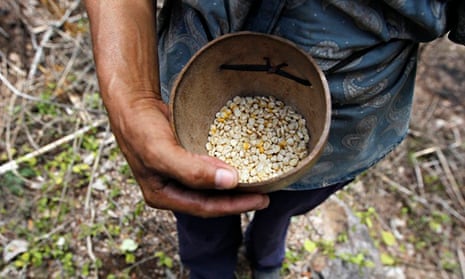About 64 million Nigerians are at risk of falling into food crisis in the coming months, according to a new World Bank report.
The Bank reported that, from 9.7 million in 2019 to 42.5 million in 2023, the number of individuals experiencing food insecurity in West Africa more than quadrupled in the last four years.
“Over the past four years, the number of food-insecure people across West Africa has more than quadrupled in the wake of multiple overlapping crises, increasing by 32.8 million from 9.7 million in June to August 2019 to an estimated 42.5 million in June to August 2023,” the report read.
The analysis estimates that 107.5 million people in West Africa are at risk of going hungry, with Nigeria accounting for more than half of those who are expected to experience food insecurity between June and August 2023.
“107.5 million people are considered to be at risk of falling into food crisis in the event of shocks from June through August 2023, particularly in Nigeria (64 million), Niger (7.3 million), and Burkina Faso (5.1 million),” the report added.
The World Bank claims that West Africa’s worrying food and nutrition situation is being caused by overlapping crises, such as insecurity and violence.
The report also detailed how persistent barriers to regional trade, such as rising transport costs; currency depreciation in Ghana, Nigeria, and Sierra Leone; and the consequences of the Russia-Ukraine war, are driving inflation, causing cereal prices to be 40 per cent higher than the average prices at which they were sold in the previous five years.
“As a result of inflationary pressures, prices of the main cereals are 25 percent to 40 percent higher than the average of the last five years, with peaks in Ghana (100 percent), Sierra Leone (100 percent), Burkina Faso (50 percent), and Nigeria (50 percent).”






